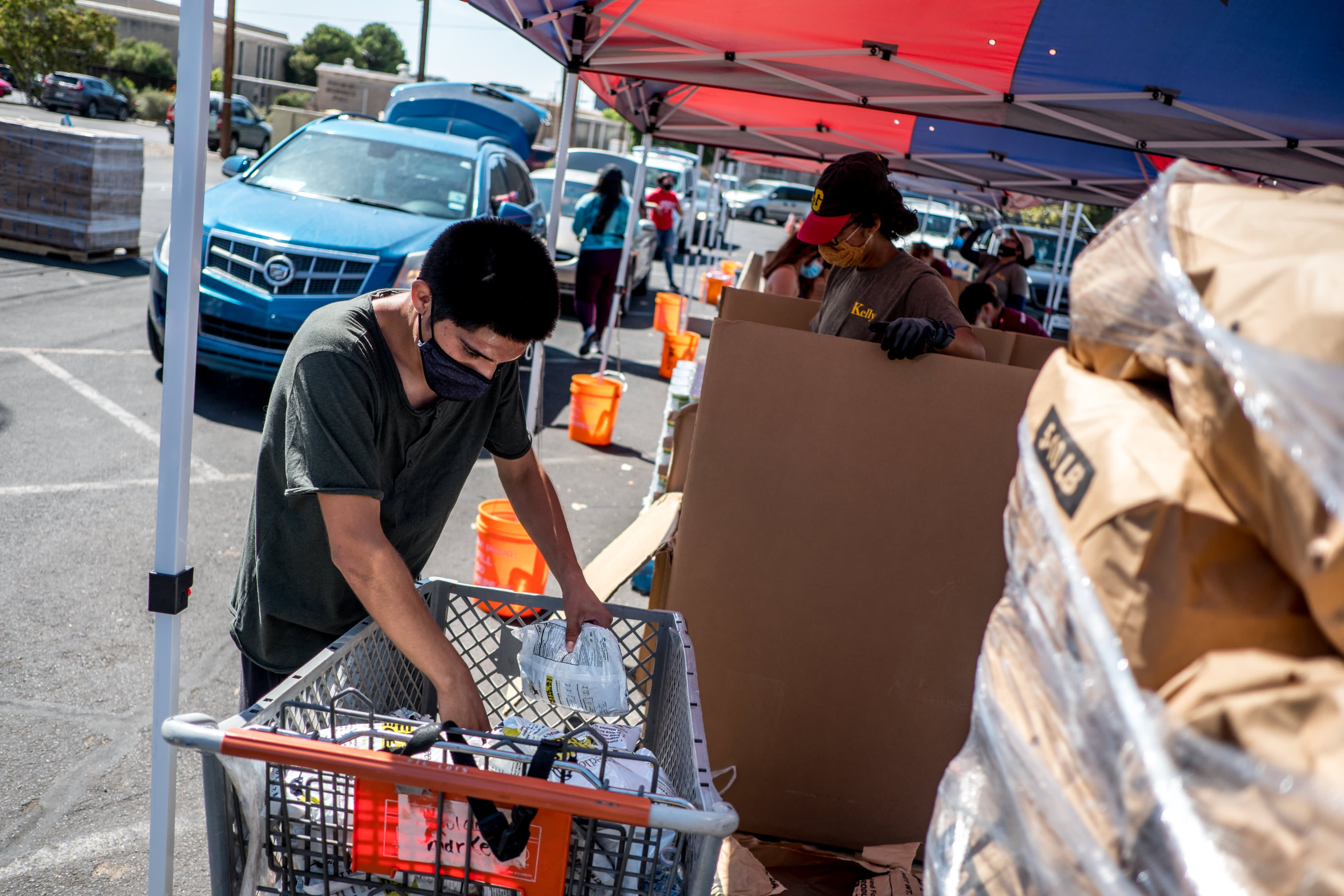Joel Angel Juarez/Bloomberg via Getty Images
Amid the season of giving — not to mention an ongoing pandemic — donating to charitable causes may be on your mind.
While the need for assistance is tremendous, experts say, it’s important to be sure your money goes to legitimate organizations that will use your donation as you intend. In other words, vet the charity before writing a check.
“There are a lot of nonprofits with their hands out right now, and most of them are great,” said Laurie Styron, executive director of CharityWatch, a watchdog group. “But there are some that will take advantage of a crisis.”
More from Advisor Insight:
Avoid tax pitfalls when rolling 401(k) assets to an IRA
What to tell your adult kids when planning your estate
How to protect yourself from rogue financial advisors
As the coronavirus continues its wearisome drag on the U.S. economy, many laid-off or furloughed workers have yet to return to the workforce. More than 20 million people are receiving unemployment benefits, whether through their state or the federal government’s extra aid authorized by the CARES Act in March, according to the latest data from the Labor Department.
In some spots, food banks have been handing out groceries and meals by the thousands each day. And when some federal protections expire at the end of the year — i.e., eviction bans, pauses on student loans — the situation could become more dire.
“If you’re going to give, this is the year to do it,” said certified financial planner Ian Weinberg, CEO of Family Wealth & Pension Management in Woodbury, New York. “It’s a no-brainer.”
If you’re going to give, this is the year to do it.
Ian Weinberg
CEO of Family Wealth & Pension Management
U.S. charities received close to $450 billion in 2019, according to Giving USA. Of that, an estimated $309 billion came from individuals; the rest was from bequests, foundations and corporations. There are more than 1.5 million tax-exempt organizations, of which about 65% are public charities, according to the National Center for Charitable Statistics.
If you are considering a donation, it’s worth knowing that the tax deduction for cash contributions to qualifying nonprofits is expanded for 2020.
For starters, those who take the standard deduction instead of itemizing can deduct up to $300 for cash contributions given to qualifying organizations (under current law, you typically must itemize your deductions to write off donations). For itemizers, your cash donations can equal as much as 100% of your adjusted gross income this year, up from the standard 60%.
Financial advisors often help their clients vet charities. That can include consulting websites such as CharityWatch, as well as GuideStar and CharityNavigator, which all analyze and rate charities to varying degrees. The Better Business Bureau also offers insight through its Wise Giving Alliance at give.org.
Additionally, most nonprofits — excluding churches — are required to file a Form 990 yearly with the Internal Revenue Service. (Those with less than $200,000 in annual revenue can generally file a simplified form.)
“There’s a lot of great information there, such as top employees’ salaries, members of the board and audited financials,” said CFP Mitchell Kraus, a principal at Capital Intelligence Associates in Santa Monica, California.
However, he said, it can often take more than a year after the group’s fiscal year-end for the form to be available. You can also look at the nonprofit’s website for an annual report, which would include much of that information.
Additionally, you can check the governance and oversight of the group.
“A lot of charities are local, so you can find out a lot by talking to board members, or the development officer at the nonprofit, and find out where they’re focusing their efforts,” Weinberg said.
One general rule is to evaluate the organization’s expenses.
“You can look at how much cost they have for overhead versus how much they give out,” Kraus said.
Also, if you’re interested in helping, say, food banks and homeless shelters, it may be best to focus on groups with existing infrastructure in place to reach individuals needing help, instead of a nonprofit that appears to have shifted its focus.
Telling your children what you’ve donated and why you did it is a great way to pass on family values.
Mitchell Kraus
Principal at Capital Intelligence Associates
“With a big crisis, some charities try to get in on the action because they don’t want to miss out on fundraising opportunities,” said Styron at CharityWatch.
And, be wary of any communication — whether via phone or email — that you don’t initiate. In mid-October, the FBI warned the public to be careful about giving money to any charity calling you for donations or if you get a call about a donation pledge that you don’t remember making.
Regardless of which charity you decide to support, be sure to make your donation by Dec. 31 if you want it to count for 2020 tax purposes.
And, don’t forget the example that you’re setting.
“Giving can be contagious,” Kraus said. “Telling your children what you’ve donated and why you did it is a great way to pass on family values.
“And, it’s a better conversation around the holiday table than politics.”
